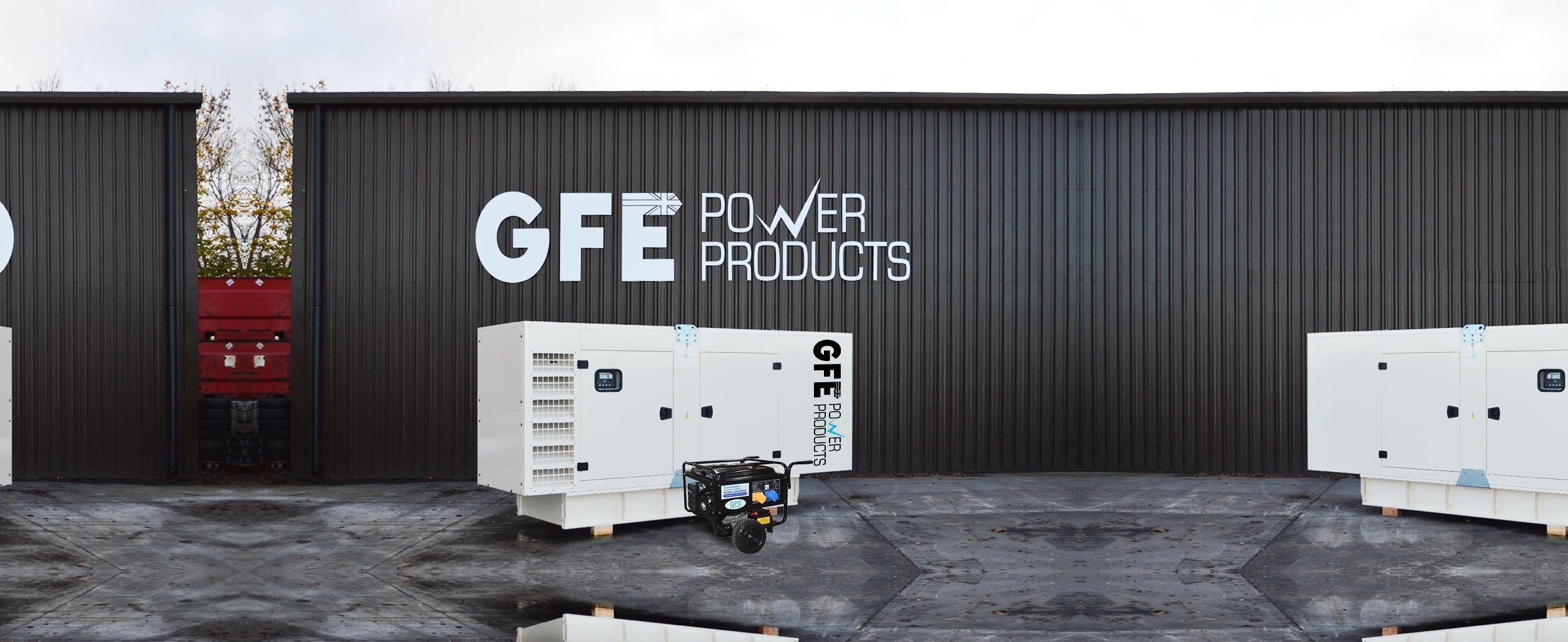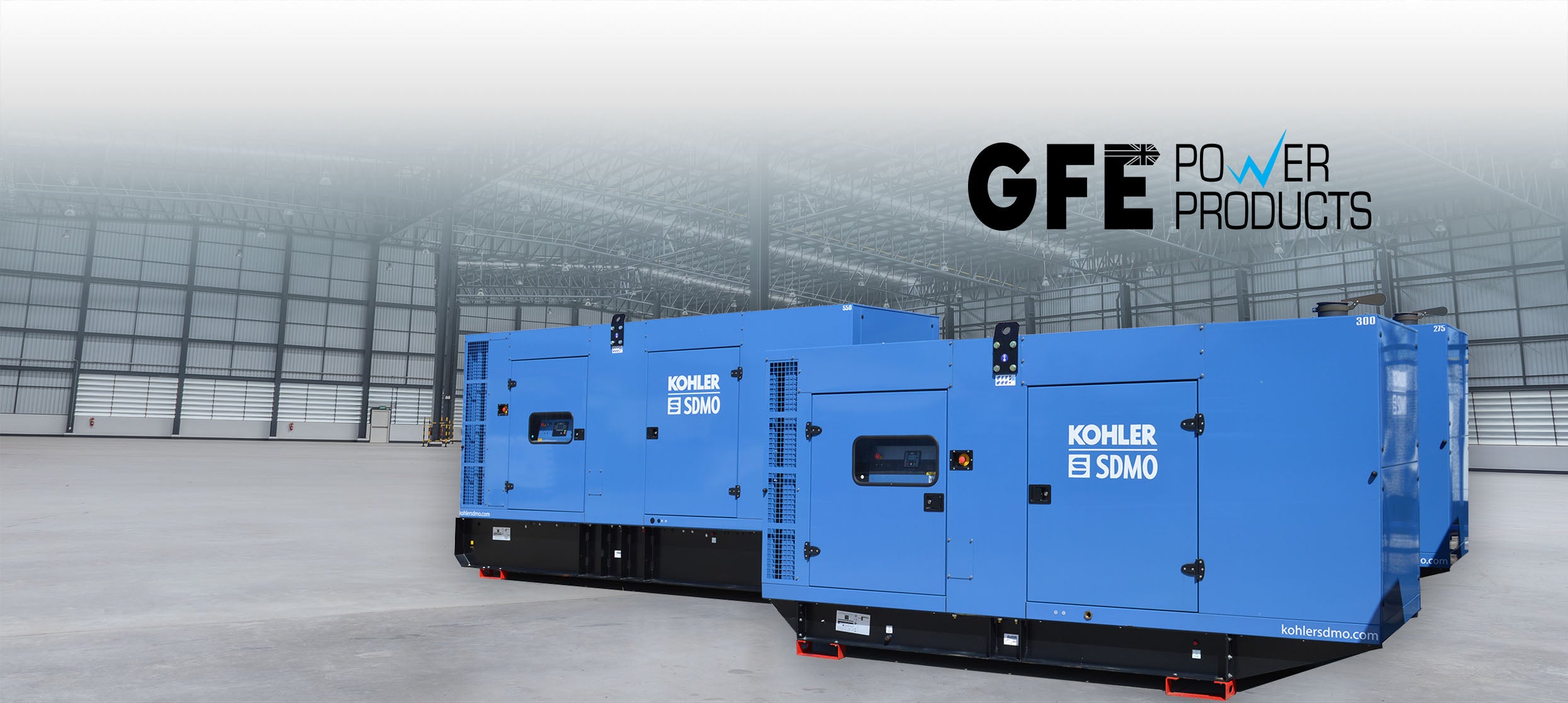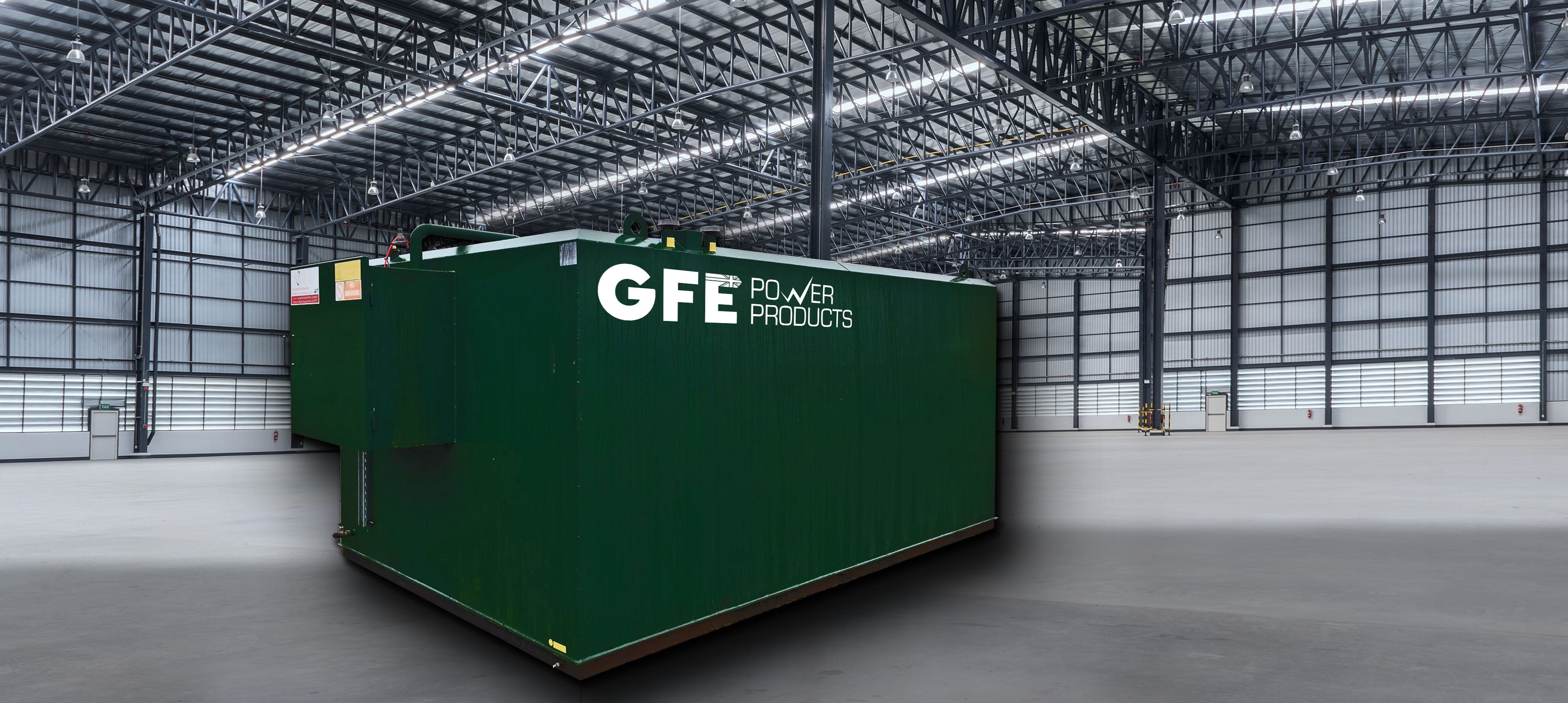
What Is The Difference Between A Single-Phase And A 3-Phase Generator?
What's the Difference and Which Is Right for You?
At GFE Power Products, we specialise in supplying high-quality new diesel generators that are built for reliability and long-term performance. One of the most important choices our customers face is deciding between a single-phase or three-phase generator. This decision can have a big impact on how efficiently your power system operates, how much it costs to run, and how well it supports your current and future energy needs.
In this article, we’ll break down the key differences between single-phase and three-phase generators, explain how each works, and help you determine which type is right for your application, whether it’s powering a home, a small business, or an industrial site.
What Is a Single-Phase Generator?
A single-phase generator delivers electricity through a single alternating current (AC) wave. This means the power supply rises and falls in a smooth, continuous motion, making it ideal for lower energy demands. You’ll commonly see single-phase power used in residential homes and small commercial properties.
Single-phase generators are straightforward, cost-effective and easy to install. Because they require fewer components, they tend to be more compact and simpler to maintain. They typically output 230 to 240 volts in the UK and are suitable for powering everyday appliances, lighting systems, and light-duty tools or machinery.
However, single-phase systems do have limitations. They’re not designed for handling high startup loads or continuous operation of heavy machinery. If your site demands high power output or is running multiple large motors or HVAC systems, a single-phase generator may not be sufficient.
What Is a Three-Phase Generator?
Three-phase generators produce electricity in a more complex and efficient way. Instead of a single AC wave, they generate power using three separate waveforms, spaced 120 degrees apart. This creates a constant stream of power that’s smoother and more balanced, particularly when operating large equipment or running multiple systems simultaneously.
This consistent power delivery is essential for industrial and commercial applications. It helps prevent voltage drops and ensures your systems run more efficiently, reducing wear and tear on equipment. Three-phase generators typically output 400 volts in the UK, making them suitable for factories, workshops, hospitals, data centres and any environment with a high energy demand.
Although they come at a higher upfront cost and require professional installation, the long-term benefits of three-phase generators, such as improved efficiency, greater capacity, and lower operating costs, often outweigh the initial investment.
Key Differences Between Single and Three-Phase Power
The primary difference between the two lies in how electricity is generated and distributed. Single-phase power is simpler and more suitable for light loads. In contrast, three-phase power delivers more consistent voltage, which is essential for powering heavy equipment and avoiding interruptions.
Single-phase systems can struggle with high startup currents, which are common in motors and compressors. This can lead to voltage drops or system failures. Three-phase systems, by comparison, provide a steady flow of energy that can handle these demands with ease.
There’s also a difference in energy efficiency. Three-phase systems distribute electrical load more evenly across the phases, reducing energy losses and improving performance, especially under continuous operation.
Which Type of Generator Is Right for You?
Choosing the right generator ultimately comes down to your application and energy needs. If you're powering a residential property, a small office, or a shop with modest energy requirements, a single-phase diesel generator is likely the most cost-effective and practical choice.
However, if you're managing an industrial site, a large-scale commercial facility, or any operation with heavy machinery, a three-phase generator will be better suited to the job. It will not only deliver the required power but also offer a more stable and efficient energy solution over the long term.
If you’re planning for future growth or expanding your operations, a three-phase generator is the more scalable option. It can handle additional electrical loads without requiring a complete overhaul of your power system.
Why Choose GFE Power Products?
At GFE Power Products, we supply a wide range of new diesel generators, including both single-phase and three-phase models. Whether you're looking for a compact generator for home backup or a robust three-phase system for your industrial operations, we can match you with a solution that fits your exact requirements.
Our diesel generators are built to the highest standards for durability, fuel efficiency and low maintenance. We only supply new generators, which ensures maximum reliability and performance straight out of the crate.
We also pride ourselves on providing expert support and advice. Our team is always available to discuss your power requirements and recommend the best generator to meet your needs. We’ll guide you through the selection process and help ensure you get the right system for the job, no more, no less.
Understanding The Differences
Understanding the difference between single-phase and three-phase generators is essential to making a smart investment in reliable power. While single-phase generators are perfect for homes and small businesses, three-phase models are the go-to choice for larger, power-hungry environments.
If you're unsure which option is right for you, our experienced team at GFE Power Products is here to help. We’ll assess your power demands, talk you through your options, and make sure you get a generator that delivers both performance and peace of mind.
Contact us today to explore our full range of diesel generators or get expert advice on choosing the right model.
Call: +44 (0)1386 335007
Email: sales@gfepowerproducts.com
Let GFE Power Products power your next project with confidence.



